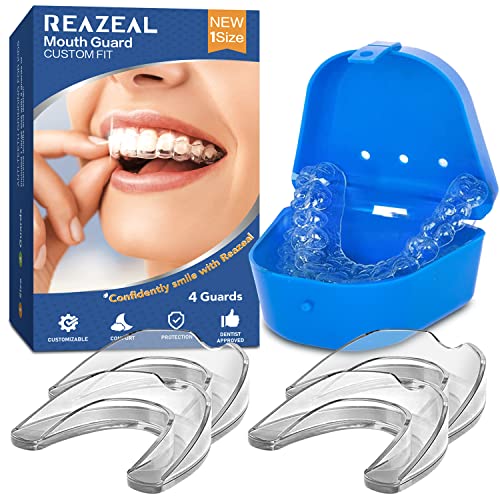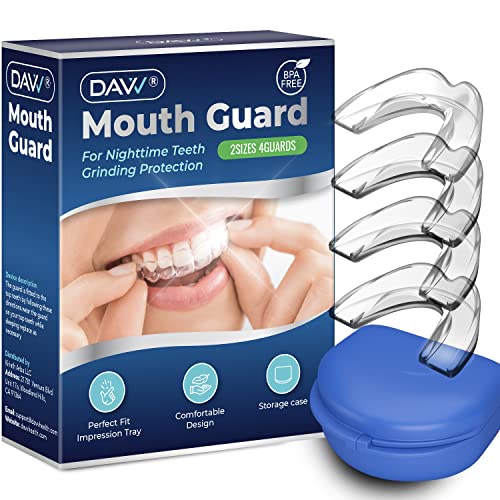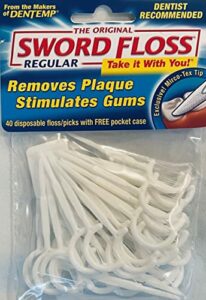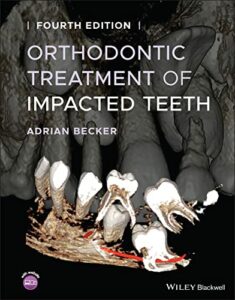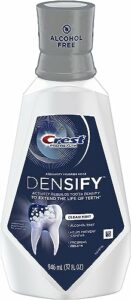We understand how frustrating it can be to deal with the discomfort and damage caused by teeth clenching. Many of us have experienced the same struggle, which is why we are here to help. In this blog post, we will dive into the world of teeth clenching and provide you with practical tips on how to protect your teeth from further damage. Our aim is to empower you with the knowledge and solutions you need to regain control over your oral health. Let’s embark on this journey together and start taking care of our smiles.
Finding Relief for Teeth Clenching
What is Teeth Clenching?
Teeth clenching, also known as bruxism, is a condition in which individuals unconsciously grind or clench their teeth together. It often occurs during sleep, but can also happen during periods of stress or anxiety. This repetitive motion puts excessive pressure on the teeth, jaw muscles, and surrounding tissues.
Causes of Teeth Clenching
There are several potential causes of teeth clenching, including:
- Stress and Anxiety: Emotional stress and anxiety are common triggers for teeth clenching. The body’s response to stress can lead to increased muscular tension, including in the jaw.
- Misaligned Bite: A misalignment of the upper and lower teeth, known as malocclusion, can contribute to teeth clenching. When the bite is not properly aligned, the jaw muscles may overcompensate to find a more comfortable position.
- Sleep Disorders: Teeth clenching can be associated with certain sleep disorders, such as sleep apnea. The body’s attempts to open the airway during episodes of interrupted breathing can cause clenching or grinding.
Impact on Dental Health
Teeth clenching can have a significant impact on your dental health. If left untreated, it can lead to:
- Tooth Damage: The excessive force exerted during teeth clenching can wear down the enamel and cause chips, fractures, or even tooth loss.
- Jaw Pain and Headaches: The constant strain on the jaw muscles can result in jaw pain, headaches, and earaches.
- TMJ Disorders: Teeth clenching can contribute to the development of temporomandibular joint (TMJ) disorders. These conditions can cause pain, clicking or popping sounds in the jaw, and difficulty opening or closing the mouth.
- Gum Recession: The pressure exerted during teeth clenching can lead to gum recession, exposing the sensitive root surfaces and increasing the risk of tooth decay and sensitivity.
- Sleep Disturbances: The noise generated by teeth clenching can disrupt your sleep and the sleep of those around you, potentially leading to fatigue and daytime drowsiness.
Managing Teeth Clenching
While there is no cure for teeth clenching, there are several strategies that can help manage the condition and minimize its impact on your dental health. These include:
- Stress Reduction Techniques: Engaging in activities that promote relaxation, such as meditation or yoga, can help reduce teeth clenching caused by stress and anxiety.
- Dental Appliances: Your dentist may recommend a custom-made nightguard or splint to protect your teeth from the forces of clenching and grinding.
- Bite Correction: In cases where misalignment is a contributing factor, orthodontic treatment or other dental procedures may be recommended to correct the bite and alleviate clenching.
- Sleep Hygiene: Establishing a regular sleep routine and creating a calming bedtime environment can help improve sleep quality and reduce teeth clenching during sleep.
- Professional Dental Care: Regular dental check-ups and cleanings are essential for early detection of any dental damage caused by teeth clenching and for the implementation of appropriate treatment.
By understanding teeth clenching and its potential causes, you can take proactive steps to protect your dental health. If you suspect that you may be clenching your teeth, consult your dentist for a comprehensive evaluation and personalized treatment plan. Remember, early intervention can prevent further damage and improve your overall quality of life.
Recognizing the Signs of Teeth Clenching
Teeth clenching, also known as bruxism, is a common condition that involves grinding or clenching your teeth, often unconsciously. If left untreated, it can lead to various dental problems and even impact your overall well-being. In this blog section, we will outline some common signs and symptoms of teeth clenching, helping you recognize if you may be affected by this condition and encouraging you to take necessary precautions.
Jaw Pain and Tension
One of the most prominent signs of teeth clenching is jaw pain and tension. If you frequently wake up with a sore jaw or experience discomfort while chewing, it could be a result of grinding your teeth. The continuous pressure applied to your jaw joints and muscles can cause them to become strained and inflamed.
Headaches and Facial Pain
Teeth clenching often leads to headaches and facial pain, which can sometimes be mistaken for tension headaches or migraines. The excessive pressure on your teeth and jaw can radiate pain throughout your face, temples, and even behind your eyes. If you frequently experience these symptoms, it’s worth considering whether teeth clenching may be the underlying cause.
Tooth Sensitivity
Do you find yourself wincing when consuming hot or cold food and drinks? Teeth clenching can result in tooth sensitivity, as the constant grinding wears down the protective enamel layer. This exposes the underlying dentin, which contains tiny tubules that connect to the nerves of your teeth, making them more susceptible to sensitivity.
Worn-Down Teeth
If you notice that your teeth appear shorter or flatter than they used to be, it may be a sign of teeth clenching. The continuous grinding motion can gradually wear down the biting surfaces of your teeth, making them more prone to fractures, cavities, and other dental issues. Your dentist may also identify signs of enamel erosion during your regular check-ups.
Earaches and Tinnitus
Teeth clenching can also manifest as earaches and tinnitus, a perception of ringing or buzzing in your ears. The close proximity of the temporomandibular joint (TMJ) to the ear canal can cause referred pain and affect the delicate structures involved in hearing. If you frequently experience these symptoms, it is advisable to consult with a dental professional.
Fatigue and Sleep Disturbances
While not directly related to teeth clenching, the consequences of this condition can lead to fatigue and sleep disturbances. The discomfort caused by grinding your teeth can disrupt your sleep patterns, leading to restless nights and a lack of quality sleep. Consequently, you may wake up feeling tired and drained, affecting your overall well-being and daily productivity.
Recognizing the signs of teeth clenching is crucial for early intervention and prevention of further dental complications. By being aware of these indicators, you can take necessary precautions and seek appropriate treatment to mitigate the effects of teeth clenching. If you suspect that you may be clenching your teeth, it is essential to consult with a dental professional who can provide an accurate diagnosis and recommend suitable treatment options.
Remember, taking proactive steps to address teeth clenching can help preserve your oral health and improve your overall quality of life.
Preventive Measures for Teeth Clenching
Teeth clenching, also known as bruxism, can cause significant damage to your teeth if left untreated. The constant grinding and clenching can wear down your enamel, lead to tooth fractures, and even result in jaw pain and headaches. However, there are preventive measures you can take to protect your teeth from this harmful habit. In this blog section, we will discuss practical tips and techniques to help you safeguard your teeth from the damaging effects of clenching.
1. Use of Mouthguards
One effective way to prevent teeth clenching damage is by using a mouthguard, which acts as a protective barrier between your upper and lower teeth. Here are some key points to consider when using mouthguards:
- Custom-fit mouthguards: These are made by professionals and offer the best fit and comfort. While they can be more expensive, they provide optimal protection for your teeth.
- Boil-and-bite mouthguards: These mouthguards are available over-the-counter and can be customized by softening them in hot water and biting down on them. Although they are less expensive, they may not provide the same level of protection as custom-fit mouthguards.
- Stock mouthguards: These are pre-formed and ready-to-wear mouthguards that can be purchased at most sporting goods stores. While they are the least expensive option, they often provide the least amount of protection and may not fit properly.
2. Stress Management Techniques
Stress is a common trigger for teeth clenching, so finding ways to manage and reduce stress can be beneficial in preventing clenching episodes. Here are some stress management techniques to consider:
- Exercise: Engaging in regular physical activity helps reduce stress and tension in the body, which can help alleviate teeth clenching.
- Relaxation techniques: Practices such as deep breathing exercises, meditation, and yoga can help relax both the mind and body, reducing the likelihood of clenching.
- Counseling or therapy: Seeking professional support can help address underlying stressors or psychological factors contributing to teeth clenching.
3. Lifestyle Changes
Making certain lifestyle changes can also play a significant role in preventing teeth clenching. Consider the following:
- Avoiding stimulants: Reducing or eliminating the consumption of stimulants like caffeine and alcohol can help decrease the likelihood of clenching.
- Improving sleep habits: Getting enough quality sleep is crucial for managing stress and reducing clenching. Establish a regular sleep routine and create a soothing environment conducive to good sleep.
- Avoiding chewing on non-food items: Chewing on pens, pencils, or other non-food items can worsen teeth clenching habits. Be mindful of this behavior and try to redirect it.
Understanding the Importance of Consulting a Dental Professional
Teeth clenching, also known as bruxism, can be a frustrating and potentially damaging condition. While occasional clenching may not be cause for concern, persistent clenching can lead to various dental problems, including tooth wear, jaw pain, headaches, and even damage to the temporomandibular joint (TMJ).
It’s essential to consult a dental professional if you experience persistent teeth clenching. They have the expertise to diagnose the underlying causes of your clenching and recommend appropriate treatment options. Here are some reasons why seeking professional help is crucial:
- Accurate Diagnosis: A dental professional can determine the root causes of your clenching. They will conduct a thorough examination of your teeth, jaw, and mouth, and may also inquire about your medical history and any related symptoms.
- Treatment Customization: Each individual’s case of teeth clenching is unique, and a dental professional can tailor treatment to your specific needs. They will consider factors such as the severity of your clenching, the presence of any dental issues, and your overall oral health.
- Preventing Further Damage: By seeking professional help, you can prevent the progression of dental problems associated with clenching. Addressing the underlying causes and receiving proper treatment can help minimize tooth wear, jaw pain, and other related complications.
Treatment Options and Therapies
There are various treatment options and therapies available to address teeth clenching, depending on the severity and underlying causes. A dental professional may recommend one or a combination of the following:
1. Oral Appliances
Oral appliances, such as mouthguards or splints, are commonly prescribed to manage teeth clenching. These custom-made devices are worn during sleep and help to protect the teeth from grinding against each other. They can also reduce muscle tension and alleviate jaw pain.
2. Behavioral Therapy
Behavioral therapy techniques can help individuals become aware of their clenching habits and learn alternative relaxation techniques to manage stress. Your dental professional may provide guidance on stress reduction methods, jaw relaxation exercises, and lifestyle modifications to help reduce clenching episodes.
3. Medications
In some cases, dental professionals may prescribe medications to manage teeth clenching. Muscle relaxants or anti-anxiety medications can be used to alleviate muscle tension and reduce clenching episodes. It’s important to note that medication should be used under the supervision of a dental professional or healthcare provider.
4. Dental Treatments
If teeth clenching has caused significant damage to your teeth, your dental professional may recommend dental treatments to restore their function and appearance. These may include dental crowns, veneers, or orthodontic treatments to correct any misaligned teeth or bite issues.
Safeguarding your smile through simple preventative measures
In conclusion, we have discussed several effective strategies to protect your teeth from the damage caused by clenching. From wearing a mouthguard to practicing stress management techniques, there are various options to choose from based on your individual needs and preferences. However, no matter which approach you take, it is crucial to prioritize your oral health and take action to prevent further damage. Ignoring the signs of clenching can lead to more serious dental problems down the line. So, let’s commit to protecting our teeth and prioritizing our overall well-being. Remember, your smile is worth it!


